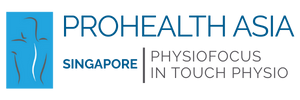Athletes’s Edge: How physiotherapy accelerates sports injury recovery
Injuries are the biggest nightmare that an athlete could ever imagine. Ankle sprains, muscle strains, fractures, and many more. For athletes this is more than daunting because, with injuries, getting back to what we love to do seems unreachable. What we really want is the most effective way to recover, and time is key. Physiotherapy, as most heard of, is a conservative way for rehabilitation. However, many isn’t aware of what physiotherapy provides, and this stops them from getting proper help.
Understanding the Physiotherapy Process
The journey to recovery begins with a comprehensive assessment. During this initial consultation, a qualified physiotherapist will evaluate your injury, taking into account your medical history, the specifics of your sport, and your individual goals. This personalized approach ensures that the treatment plan is tailored specifically to your needs.
Treatment Options
Physiotherapy encompasses a variety of treatment modalities designed to promote healing and restore function. These can be broadly categorized into passive and active treatments:
Passive Treatments
These are designed to relieve pain and reduce inflammation. Techniques may include:
Manual Therapy: Hands-on techniques that improve mobility and reduce pain.
Modalities: This includes ultrasound, electrical stimulation, and heat/cold therapy, which can help reduce swelling and promote blood flow.
Active Treatments
These focus on rehabilitation and strengthening. Your physiotherapist will guide you through specific exercises aimed at:
Restoring Range of Motion: Gentle stretching and mobilization exercises help regain flexibility.
Building Strength: Targeted strength training is crucial for reconditioning muscles and preventing future injuries.
Improving Coordination and Balance: Sport-specific drills can enhance your overall athletic performance and reduce the risk of re-injury.
The Role of Education
An essential aspect of physiotherapy is education. Understanding your injury, the recovery process, and the importance of proper biomechanics can empower you as an athlete. Your physiotherapist will provide insights into:
- Injury Prevention: Guidance on techniques and strategies to avoid future injuries.
- Self-Management: Tips on how to manage pain and maintain your physical condition while recovering.
The Psychological Aspect
Injuries can also take a mental toll on athletes. The fear of re-injury and the frustration of being sidelined can lead to anxiety and a lack of motivation. Physiotherapists not only focus on the physical aspects of recovery but also provide psychological support. Techniques such as visualization, goal-setting, and relaxation strategies help athletes maintain a positive mindset, crucial for a successful comeback.
The Importance of Early Intervention
One of the most significant advantages of physiotherapy is the emphasis on early intervention. The sooner you seek help for an injury, the quicker your recovery can begin. Delaying treatment can lead to complications and prolonged downtime, making it essential to address issues as they arise. A proactive approach can often mean the difference between a quick return to sport and a lengthy rehabilitation process.

